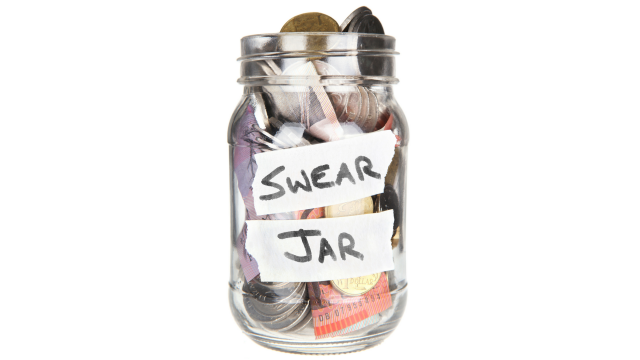Photo: hidesy/Shutterstock
Kids talk a lot. Parents usually respond with a nod or chuckle or maybe a glazed-over look when it’s already 18 minutes past bedtime and they’re still dissecting the tropes of the My Little Pony movie, but every now and then, they will hear a word and gasp.
Wait, what did you say? Where did you learn that? We don’t use that word in this family. Never say that again.
Suddenly, a word that was just a word becomes a forbidden thrill. And so the kid keeps saying it, reveling in the response. Mum and Dad are soon convinced that their once-innocent darling is headed straight for The Maury Show.
“Bad” words are subjective, but on the whole, parents tend to overreact when kids say them. And they are going to say them. Psychology professor Timothy Jay, who wrote a book called What to Do When Your Kids Talk Dirty and has studied the science of swearing for decades, tells me “kids start swearing as soon as they start talking” and that “psychologically, it’s not harmful.” They’re experimenting with language and learning how to express their emotions, all normal and healthy.
Still, that doesn’t mean your home needs to be a sailor’s free-for-all. “Just like you teach your kids table manners, you can teach them the etiquette of language,” Jay says. While boundaries will vary depending on the kid’s age and where you stand on certain words (“In some families, it can be worse to say Jesus Christ than fuck,” Jay says), you can establish a tone that you’re comfortable with. Here’s how:
Be Boring
The way you react to a word determines its power. If you flash a look of horror, or laugh, that word rises in power and becomes exciting to say. But if you don’t respond positively or negatively, it dissolves into just another word. “Be cool,” Jay says. “You can say, ‘Oh that’s an interesting word. Do you know what it means?’” Then, particularly with “potty words,” you can take the mystery out of them with science. For instance: “Yes, that’s a word for penis — would you like to see a diagram of the human body?”
Address the Emotions Behind the Language
If a child says a curse word out of anger, or calls his little brother a bad name, it doesn’t really matter what word they said, but why they said it, Jay explains. It’s important to acknowledge and explore the intent behind the language, and teach kids productive ways to manage their big feelings.
Distinguish Swears vs. Slurs
While ordinary profanity may be inconsequential, there are words that can profoundly hurt other people, and kids need to know that. If a child says a word that is racist or sexist, Jay says that yes, you should absolutely tell them, “We do not say that word” with an explanation why, along with the future consequences of saying it.
Give Them Space to Use Swear Words in an Appropriate Setting
Kids need to know there’s a time and place for certain language. How they talk while playing video games with their buddies in the basement will be different than how they speak at the Thanksgiving dinner table with grandma. At home, you can establish places where they can experiment with language freely, like their bedrooms.
Ultimately, swearing can be a tool for expressing emotions, which is important to do at any age. But if it’s not really your thing, you can always teach your kids some fun alternatives, ya son of a bee sting.

Comments
3 responses to “What To Do When Kids Swear ”
Pretty much what is said above. Dont overreact to it. The more you overreact the more you make them want to say the word. If you dont react and let them know why that word is not good they will understand. Immediately going straight to anger only makes the word more attractive to them
Praise them. They are embracing Australian culture
We had a different approach: we explained that there were no “bad” words, all words are just words, but that swear words were just words used in the wrong context as they had perfectly good meanings that didn’t fit where they were used and it was usually lazy people who did not want to think who used them like that.